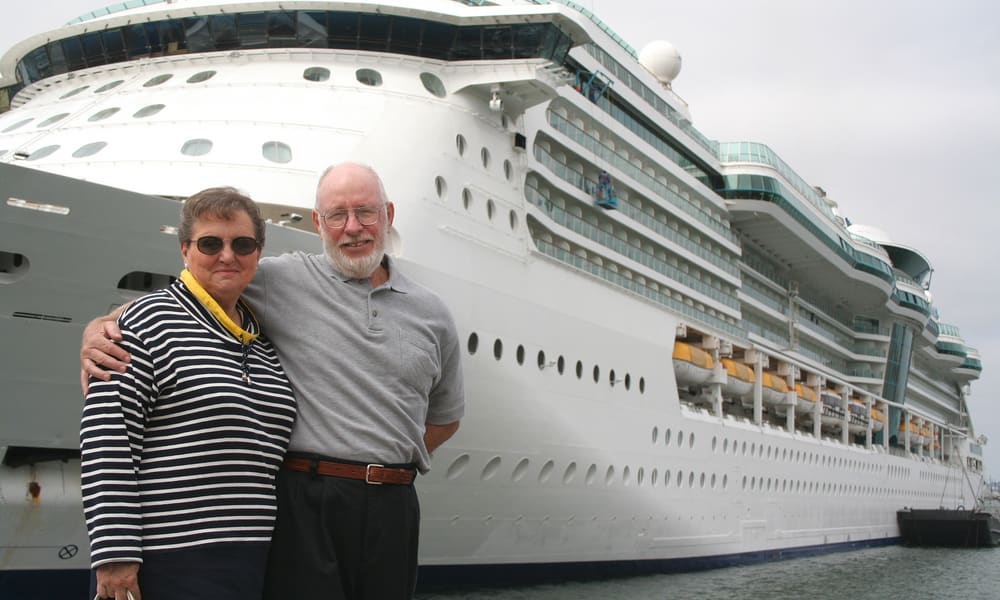Global Cruise Ship Careers: Work and Travel Opportunities Open Now
Cruise ship jobs are opening doors for people around the world who want more than just a typical job. Whether you’re from Asia, Africa, Europe, or Latin America, cruise lines are hiring for various onboard roles — from housekeeping and food service to entertainment and technical staff. These positions allow you to earn, grow professionally, and travel to incredible destinations at the same time. Learn what positions are available, how to qualify, and what to expect from life at sea. If you’re ready for a job that combines adventure with career development, cruise ships may be your next move.

What Types of Cruise Ship Jobs Are Currently Available?
Cruise ships function as floating cities, requiring staff across numerous departments to operate smoothly. Currently in high demand are hospitality roles including waitstaff, bartenders, room stewards, and guest services representatives. Technical positions like engineers, electricians, and IT specialists remain consistently needed. Entertainment departments seek performers, production staff, and activity coordinators. Specialized roles in health services (doctors, nurses), retail, casino operations, and fitness instruction also offer significant opportunities. Many cruise lines are particularly seeking multilingual candidates who can communicate effectively with an international passenger base.
What It’s Like to Live and Work on a Cruise Ship
Life aboard a cruise ship creates a unique work environment unlike any land-based job. Crew members typically share cabins below the passenger decks, with accommodations varying by position and seniority. Work schedules are intensive—often 7 days a week with contracts lasting 4-9 months, followed by 1-2 months of vacation. While the hours can be demanding, many crew members appreciate the structured routine and absence of commuting. Social life centers around crew-only areas including dedicated dining rooms, bars, and recreation spaces. The multicultural environment provides extraordinary opportunities for forming international friendships and experiencing diverse customs firsthand.
Global Demand for Cruise Staff: Who Can Apply?
The cruise industry employs workers from over 100 countries, with particularly strong representation from the Philippines, India, Indonesia, Eastern Europe, and Latin America. Most positions require a minimum of a high school diploma, with specialized roles demanding appropriate certifications or degrees. English proficiency is essential for nearly all positions, while additional languages significantly enhance employability. Age requirements typically range from 21-65, though this varies by cruise line and position. Previous hospitality experience is valuable but not always mandatory for entry-level positions. Criminal background checks and medical fitness evaluations are standard requirements across the industry.
What Are the Financial Benefits of Working on Cruise Ships?
Cruise ship employment offers a distinctive financial opportunity with minimal expenses while onboard. Entry-level positions generally earn $1,200-2,500 monthly, while officers and management can command $4,000-10,000+ monthly. Since room and board costs are covered, employees can potentially save a significant portion of their income. Additional financial benefits include tips for guest-facing positions (potentially doubling base salary), commission opportunities for retail and spa staff, and tax advantages depending on your citizenship and time spent at sea.
| Position | Monthly Salary Range | Additional Benefits |
|---|---|---|
| Room Steward | $1,200-2,200 | Tips, accommodation, meals |
| Waiter/Waitress | $1,500-2,500 | Tips, accommodation, meals |
| Chef | $3,000-6,000 | Accommodation, meals |
| Entertainment Staff | $2,000-4,000 | Accommodation, meals, performance bonuses |
| Engineer | $4,000-8,000 | Accommodation, meals |
| Medical Doctor | $6,000-10,000+ | Accommodation, meals, medical benefits |
Prices, rates, or cost estimates mentioned in this article are based on the latest available information but may change over time. Independent research is advised before making financial decisions.
Step-by-Step Guide to Applying for Cruise Ship Jobs
Securing employment on a cruise ship follows a systematic process that begins with thorough research. Start by identifying cruise lines that match your skills and preferences—each company has a distinct culture and employment approach. Create a targeted resume highlighting relevant experience, particularly customer service skills and previous work in hospitality or tourism. Apply directly through cruise line career portals or via specialized recruitment agencies like Cruise Job Finder or International Cruise Services. Prepare for video interviews, as most initial screenings occur remotely. If selected, you’ll complete extensive pre-employment documentation including medical examinations, security background checks, and seafarer certifications. The entire process typically takes 2-6 months from application to boarding.
What Challenges Should You Prepare For in Cruise Ship Work?
Working on cruise ships presents unique challenges alongside its advantages. Limited personal space and privacy in shared accommodations can be difficult for those accustomed to independent living. Extended separation from family and friends—often for months at a time—requires emotional resilience. Internet connectivity can be expensive and unreliable, complicating communication with loved ones. The constant rotation of passengers means repeating the same routines and information regularly. Physical demands include long hours standing, navigating narrow corridors, and maintaining balance in rough seas. Cultural adjustments are necessary when working with an international crew, requiring adaptability and open-mindedness to different communication styles and work approaches.
How Can Cruise Ship Experience Advance Your Career?
Beyond immediate employment, cruise ship work offers valuable career advancement opportunities. Many cruise lines prioritize internal promotion, allowing entry-level staff to progress into supervisory and management positions. The international experience gained is highly transferable to land-based hospitality, tourism, and service industries. Soft skills developed—including adaptability, problem-solving, and cross-cultural communication—are increasingly valued across all employment sectors. Some crew members leverage their experience to transition into shoreside operations with cruise companies or related industries. Others apply their savings toward entrepreneurial ventures or further education. The global network of professional contacts developed while working onboard frequently leads to future employment opportunities worldwide.
The cruise industry continues to expand despite economic fluctuations, offering steady employment with unique benefits unavailable in traditional workplaces. For those with a sense of adventure, strong work ethic, and desire to experience the world while building a career, cruise ship employment presents a compelling opportunity to transform professional ambitions while satisfying wanderlust.




